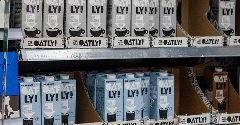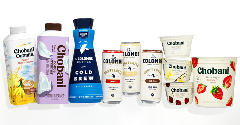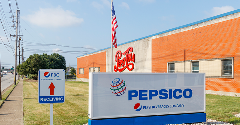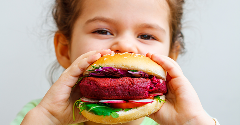News
Gen Z prefer natural, practical
29 Apr 2016Taught to make healthy choices from a young age, Gen Z college students take that lesson seriously when reaching for beverages according to a new survey from industry consultants Beverage Marketing Corporation (BMC) and Fluent

Taught to make healthy choices from a young age, Gen Z college students take that lesson seriously when reaching for beverages according to a new survey from industry consultants Beverage Marketing Corporation (BMC) and Fluent, a college marketing and insights agency. Practicality and natural products are preferred - while artificial ingredients and crazy fads are likely to cue a collective eye–roll, the researchers say. The survey of undergraduates is claimed to offer clear direction to those who make, distribute and sell beverages to Gen Z: keep it simple and know your niche.
"From early–kindergarten lectures to constant health–related headlines on their phones, this generation knows about having to proactively make their own choices and not just take things at face value," said Fluent EVP Michael Carey. "And while they reach for water first, there are opportunities for other beverages to fill niche roles, if they know where to look.""As Gen Z matures, there are exciting opportunities for our industry to engage with these consumers in a positive way," said Beverage Marketing Corporation Chairman and CEO Michael Bellas. "We look forward to sharing how companies can reinforce strengths and create new experiences by listening to what this newest and typically hard–to–access audience has to say."According to the survey the key takeaways are:+ Bottled water is THE top beverage purchase – 43% consume it 7+ times per week, with coffee (hot or iced, not specialty) next at 22%.Brewed tea was third at 12% in that category, and then beer at 9%. Hydration/thirst was the number one reason students pick up something to drink.+ Asked about future consumption, 42% plan to drink more bottled water and only 8% less of it, and 22% of students expect to drink more brewed tea, against 7% saying less. Barring significant innovation, soda is likely to continue its decline, with 33% planning to drink less against 3% to drink more. This correlates with recent data from BMC that finds bottled water is the second most popular beverage in the U.S., likely to overtake carbonated soft drinks' supremacy late 2016 or in 2017.+ While they find bottled water tastes better than tap water, 59% try to fill up water bottles and/or use a filtered water system on a regular basis. Still, nearly 20% of students rely solely on bottled water over tap or filtered, for many of the same reasons bottled water scores over other non–alcoholic beverages: It's healthier, more convenient and easier to find.+ Students read labels, 43% regularly and 38% at least sometimes. The top three descriptors influencing purchase are "all–natural" (52%), "low–calorie" (37%), and to a lesser extent, "organic" (36%), with "vitamin–enhanced" at 31% and "zero–calorie" at 27%.+ Around half of all students say they try to avoid artificial sweeteners, flavouring, preservatives, and high–fructose corn syrup. The sweetener they are most okay with is cane sugar (55%).+ The top reasons they try beverages? Students cite friends' picks (52%), "healthy/good for you" (49%), free samples (37%), interesting flavours (36%) and sale/ promotions (25%).+ Sports drinks have clear roles. 37% of respondents drink them for hydration and recovery, 14% drink them for taste, and 13% to quench their thirst. They drink them most often while working out (54%) vs. before or after, to combat hangovers (46%), then because they are thirsty (45%).+ Pick–me–up choices were campus classics. The top go–to beverage was coffee at 49%, and then brewed tea at 15%. Water tied for third at 13% with soda, which seems to be a key messaging opportunity for carbonated soft drinks – ahead of energy drinks (8%).+ 74% of respondents say they do consume alcohol and 81% of those do drink beer on occasion. Asked what they prefer most, beer had a slight edge, with it, wine and spirits somewhat equal.+ When it comes to mixers, students reach first for soda (37%), and then juice (35%), followed by seltzers (10%).The survey was conducted March 15 – 21, 2016 and polled 1,010 undergraduate respondents across the USA. A third were under 21 years of age, with data on use of alcohol reflecting demographics. Survey results will be published and put in context in a BMC market report entitled U.S. Student Beverage Consumption and Attitudes.Related news

UK High Court allows Oatly to use 'milk' on packaging
17 Jan 2024
Oatly has scored a landmark victory in the use of the word milk after the UK High Court ruled against the country’s dairy industry and permitted the term to be used on packaging.
Read more
Chobani expands drink presence with La Colombe acquisition
16 Jan 2024
Greek yoghurt giant Chobani has purchased US coffee brand La Colombe Coffee Roasters for $900 million, furthering its expansion into beverage categories like coffee, oat milk, creamer and ready-to-drink offerings.
Read more
PepsiCo to reshape convenient foods portfolio with less sodium and more plant proteins
10 Jan 2024
PepsiCo has revealed details of two nutrition goals that look to reduce sodium and boost consumption of legumes, whole grains, and plant-based proteins as part of the multinational’s expanded convenient foods portfolio.
Read more
Meet the innovative ingredients showcased at Fi Europe’s New Product Zone
3 Jan 2024
The Food Ingredients category at Fi Europe’s New Product Zone featured 19 distinct and innovative products. From fermented delights to sustainable proteins, these ingredients are ready to make their mark in the market.
Read more
Fi Europe’s New Product Zone elevates the nutrition of everyday indulgences
22 Dec 2023
At Fi Europe 2023's New Product Zone, eight health ingredients, each offering an enhanced nutritional profile of various products, were on display. These ingredients address the evolving needs of the food and beverage industry and cater to consumers se...
Read more
MyAir plans to expand personalised adaptogen products to UK
15 Dec 2023
After launches in Japan and the US, B2B personalised nutrition company MyAir is eyeing the UK market with its white-label functional food and drink products. “Taste is a must – but it's not enough,” says its CEO. “Food has become functional and persona...
Read more
Augmented technology is the gateway to new food experiences
13 Dec 2023
Harnessing augmented reality as a digital tool could offer consumers increasingly personalised food and beverage experiences, opening up new ways to see and taste products, according to a report by Canvas8 and Givaudan.
Read more
Colombia introduces tax on ultra-processed foods
7 Dec 2023
In a bid to curb rates of obesity and other non-communicable disease, the Colombian government has introduced a tax on various ultra-processed food (UPF) and drink products.
Read more
Snack trends, ingredient claims, and plant-based perceptions: Highlights from Fi Europe 2023, part 1
7 Dec 2023
Value-led snacking, sustainability storytelling, and the importance of having a ‘star ingredient’: we asked consumer analysts and market experts at Fi Europe about the trends and innovations that are shaping the food industry.
Read more
Consumers want more plant-based meat without GM ingredients
28 Nov 2023
Plant-based meat has been a hot and popular category for several years, but not all North American shoppers are embracing vegetarian alternatives that contain genetically modified (GM) ingredients, according to the Non-GMO Project.
Read more